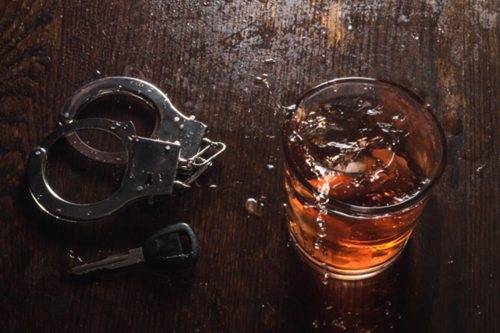As a DUI defense attorney in Columbia, South Carolina, I deal with cases involving DUI checkpoints. Not all states permit law enforcement to conduct DUI checkpoints, South Carolina, however, is not one of those states. It is important to understand that law enforcement has very specific rules for conducting and enforcing DUI checkpoints. Failure to establish a valid DUI checkpoint can result in a suppression of evidence and a dismissal of a DUI case.
What Does the Fourth Amendment Have to do with DUI Checkpoints?
The Fouth Amendment to the U.S. Constitution states that U.S. citizens are protected against unreasonable searches and seizures.
The right of the people to be secure in their persons, houses, papers, and effects, against unreasonable searches and seizures, shall not be violated, and no warrants shall issue, but upon probable cause, supported by oath or affirmation, and particularly describing the place to be searched, and the persons or things to be seized.
“Seizure” occurs when you were ordered to pull over and you will not be able to leave without the officer’s permission. Since law enforcement officers at a DUI checkpoint seize every driver without probable cause, these stops may appear unconstitutional and illegal to many people.
In a 1990 decision, the U.S. Supreme Court ruled that being stopped at a DUI checkpoint does meet the Fourth Amendment’s definition of unreasonable seizure. The 1990 decision determined these types of seizures to be legal as an exception to the amendment.
What to do at a DUI Checkpoint in South Carolina
If you are stopped at a DUI checkpoint, please remember the following:
Stay Calm. Officers realize being stopped by the police is stressful for most drivers, but acting overly nervous or upset can raise suspicions.
Be Respectful. There is no need to aggravate or disrespect the officer. If you must decline an officer’s requests, do so politely. The incident does not need to escalate but, if it does, you can guess who will be on the losing end of the encounter.
Exercise Your Right to Remain Silent. Be respectful – this cannot be over-emphasized. Respectfully tell the officer you wish to remain silent. Unless you are versed in the law, don’t say anything.
Do Not Consent to a Vehicle Search. You do not have to consent to a vehicle search if the officer asks. Refusing to consent to a vehicle search does not mean you are guilty of a crime, nor does it make you look guilty. Consent cannot be implied by your silence.
Field Sobriety Tests. If asked, you don’t have to perform any field sobriety tests, but refusal to do so will be cause for the suspension of your driver’s license.
Requirements for Legal DUI Checkpoints in South Carolina
There are strict guidelines the state must follow to establish DUI or sobriety checkpoints. While it may appear, at times, that checkpoints are set up randomly by officers with too much time on their hands, I can assure you that this is not the case. DUI or sobriety checkpoints must meet the following guidelines for establishment:
Law Enforcement Must Have a Valid Reason for the Checkpoint – Law enforcement must have a valid reason for the checkpoint’s location.
Supervisory Approval is Needed – Supervisory law enforcement personnel must approve: (1) the decision to establish a checkpoint; (2) the selection of the checkpoint site, and (3) the procedures for the checkpoint’s operation.
Law Enforcement Must Publicize the Checkpoint – Law enforcement must announce the date and the location of any potential checkpoint.
Cars Must Be Stopped in a Predictable Pattern – When conducting a checkpoint in South Carolina, law enforcement can’t stop vehicles randomly. Instead, law enforcement can only stop motorist according to a neutral formula. For example, may stop cars by pulling over every second or third vehicle.
The Site Must Be Safe and Identifiable – Law enforcement must take safety precautions such as proper lighting, warning signs, and signals. Also, law enforcement must use clearly identifiable official vehicles and be in uniform personnel are used. Lastly, the checkpoint must exhibit be clearly identified as a license or a DUI checkpoint. In other words, the checkpoint cannot be used randomly for anything the officers feel like investigating. Further, the checkpoint must also provide sufficient warning to allow motorists to stop safely at the checkpoint.
The Stop Must Be Brief – Under South Carolina law, there is no set time limit during which law enforcement can detain a driver at a checkpoint. Having said that, law enforcement must set up procedures to make sure that they aren’t holding drivers longer than needed. Whether the period of the stop was reasonable depends on the circumstances in each case.
The Checkpoint Must Be Effective – In cases involving an arrest at a checkpoint, the prosecution must show evidence that the checkpoint “served the public’s interest.” Typically, the prosecution can prove effectiveness by showing that the traffic stops actually resulted in uncovering traffic violations (such as driving without a license) or criminal violations (such as drunk driving)
DUI Defense Lawyer in Columbia, SC
A criminal charge by itself already carries the potential for harsh consequences that may forever change your life. If you are a noncitizen, a criminal charge may even more severely impact your future as it could result in your detention, deportation, or being permanently barred from re-entering the United States. If you find yourself in this situation in South Carolina, do not hesitate to contact the Li Law Firm. Having an experienced attorney by your side as early as possible in the process is crucial to ensure that you have the right strategy for defending your rights.

